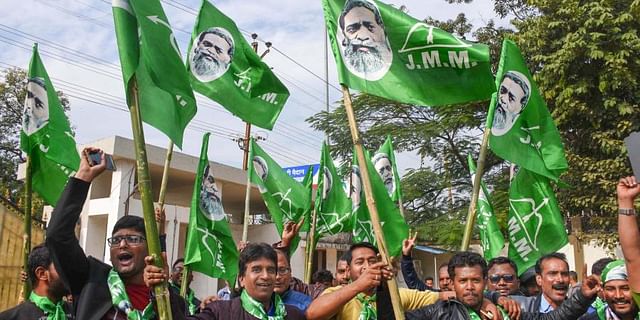
Tatas’ move to shift HQ from Ranchi to Pune faces resistance. But why?

The Tata Group’s decision to move the headquarters of Tata Motors and Tata Cummins Company from Ranchi to Pune has miffed the Jharkhand Mukti Morcha (JMM), which recently passed a Bill in the Assembly reserving 75 per cent jobs for locals in private enterprises based in the state.
As per reports, some five MLAs, belonging to the JMM, which is in power in the state, led a group of residents to block the main entrance of the company in Jamshedpur. In Chaibasa, the main gate of the iron ore mine was blocked from early morning on Wednesday (November 17) till late night.
The protest has been building up for last few days, primarily fuelled by the locals’ fear that the Tatas, the largest private sector enterprise in the state, are planning to shift out, which could result in joblessness for 15000-strong workforce of the company in the state.
The ongoing protest has impacted production in the Group’s iron ore mines.
JMM’s apprehension
The JMM believes that Tatas do not wish to comply with the 75% quota law and hence are finding an escape route. Party MLA Sukhram Oraon said, “The Jharkhand government has decided in the interest of the people that all private companies located in the state will have to give 75 per cent jobs to the locals in their establishments. To avoid this compulsion, the headquarters of Tata Motors and Tata Cummins are being shifted to Pune (Maharashtra).”
The Tatas have, however, refuted the claim. A statement issued by Tata Cummins read: “We are only moving our registered office. This will not affect the functioning of the company in Jharkhand or Jamshedpur. We in the company comply with all labour laws and other rules of the state government.” Besides sources in the government said that the Tatas had applied in 2018 itself for shifting the registered office to Pune, much before the 75% local job quota was even thought of.
The Tatas have clarified that the process for the transfer of the Registered Office of Tata Cummins Private Limited (TCPL) from Jamshedpur to Pune was initiated a few years ago. “This is being done to facilitate the ease of administrative operations with the corporate office. The move will not impact the revenue, employment, and welfare opportunities for the state of Jharkhand or the city of Jamshedpur,” the company statement added.
The JMM though is not willing to buy the argument. The party says the people of Jharkhand feel betrayed. Another party MLA, Ramdas Soren, wrote a letter to chairman of Tata Sons, N. Chandrasekaran: “The Jharkhand government made Tata companies its land, minerals, water and human resources available to uplift the local Adivasis. The ‘promise’ of employment, education and health facilities rang hollow.”
When did the trouble start?
The protesting MLAs are using a letter written by the Income Tax Department to Chief Secretary of Jharkhand, which mentions transfer of jurisdiction of PAN of Tata Cummins from Jamshedpur to Pune.
Once the jurisdiction of PAN is transferred to Maharashtra, all legal matters with relation to employment can be addressed in the Mumbai High Court only. Besides, labour laws, recruitment policy (including job quota) shall be governed by the prevailing laws of Maharashtra. This is precisely why the JMM is upset and fears the Tatas have made up their mind to dodge the 75% job quota for locals.
The JMM-led government is not willing to speak on the topic officially, but it wants to make it an emotive issue and block anyhow the company’s attempt to shift its office out of the state.
Several ancillary units are dependent on Tatas’ units and iron ore mines for survival. It can be said that the Group, which is the only one of its size in Jharkhand, majorly aides the local economy. “We want that other OEMs (Original Equipment Manufacturer) at par with Tata group should be lured to invest so that there is a diversification in jobs as well as competition. In the long term, this will only create more jobs because currently, the growth happens in spurts dependent around one group,” the owner of one ancillary unit told The Indian Express.


